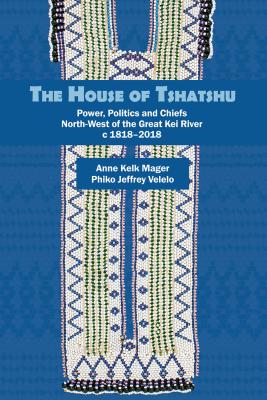The House of Tshatshu: Power, politics and chiefs north-west of the Great Kei River c 1818-2018
Synopsis
‘In 1852 Sir George Cathcart pronounced that the amaTshatshu chieftaincy no longer existed: “I have broken and banished the tribe”, he boasted. This deeply researched book, at once clear-sighted and moving, traces the consequences of this proscription to the present day. In the course of a detailed examination of 200 years of this Thembu chieftaincy, Mager and Velelo illuminate a number of large and pressing themes in South African history. These include the contested meanings of chieftaincy and ethnicity; the complex politics and violence of settler colonialism and apartheid-era Bantustans and their consequences in the present day, and the meaning of land and land restitution in the context of the continuing neglect of rural populations. In 2013 the Tshatshu chieftaincy was finally restored and its new incumbent installed in a powerful ceremony, but with history weighing so heavily on this story, it seems unlikely that this is the final chapter.’ – Megan Vaughan, University College of London
‘The authors recognise that they are differently positioned in relation to this history and that while they belong in the story, it does not belong to them. They pose pertinent questions for political reform and gender relations: Can institutions which have been tainted by a hostile past be harmonised with the Constitution and the Bill of Rights that are the fundamental guides for South Africa’s democracy? How these and other questions are handled throughout the book is impressive.’ – Professor Luvuyo Wotshela, University of Fort Hare
Downloads



